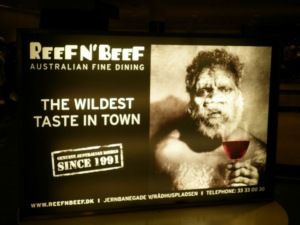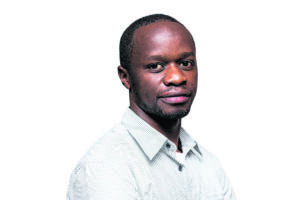Opinion
Straight Up: Let’s talk about race
Zach Khadudu
This article is more than 8 years old.

The wildest taste, or in bad taste? (photo: Christian Wenande)
The race debate that refuses to go away re-emerged this summer. This time, prompted by a radio program on public broadcaster DR, which invited listeners to call in with their ‘jokes without borders’, listeners heeded the clarion call.
Amnesia about slavery
They called in with jokes that were not only racist, demeaning and subjugating to people of colour, but also awoke the deep-seated sentiments of a race divide. For a country that was forefront in the slave trade, it suffers public amnesia regarding its involvement in human history’s biggest crime.
Arguing that we should merely laugh at these kinds of jokes in the name of freedom of expression is a bit disingenuous. Today, pressure groups in the Virgin Islands are still pushing for a formal apology from the Danish government and reparation for the slavery, which by any measure were crimes against humanity of a monumental proportion.
The nation has eyes wide shut to its history. It’s time we face ourselves. Copenhagen, like other major western capitals, is a city built on the blood, sweat and tears of African slaves. Even by conservative estimates, Denmark enslaved more than 100,000, stripping the African continent of its human and natural capital. While most of the enslaved people made it to the Danish West Indies to work as beasts of burdens on Danish plantations, many perished at sea.
Education badly needed
Instead of broadcasting a racist jokes program, DR should start with some basic civil education 101 about Danish history and the inter-generational trauma it caused many African people whose descendants today reside in the Virgin Islands. Let DR be at the forefront of educating us about how stolen wealth from Africa and elsewhere made this nation what it is today.
Denmark prides itself on being an egalitarian society. When it comes to equality, justice and freedoms, it ranks highly. Beneath this veil, however, is a deep mistrust of people seen as ‘the other’, whether it’s black people, refugees or Muslims.
How else can you explain a program on a national broadcaster that actively endorses the condescension of people of colour? Who are the gatekeepers that give a green light to these broadcasts – what social cohesion do these programs contribute to?
A house of cards
The Danes may be among the happiest people on the planet, but the tentacles of the white supremacists – thinly-veiled in the language of the alt-righters – is very much alive and present.
For the umpteenth time in this column I will say: until this country reconciles itself with its slave history, the race debate will continue to recur as a malignant infection in the bowels of the nation.
Any nation that wishes part of its history would simply go away is a house of cards susceptible to crumbling.
Call it far-fetched, but justifying racism for laughs, as in the case of the DR program LOL DK on P3 radio station, shows how little Denmark has evolved since the days of slavery when people of colour were regarded as lesser humans. In the words of Karl Marx: “History repeats itself, first as tragedy, then as farce.”

About
Zach Khadudu
Zach is a Kenyan by birth and a journalist by choice. He is a commentator and an activist with a passion for refugee and human rights. He may share a heritage with a certain US president, but his heart lies elsewhere – in the written and spoken word.










































